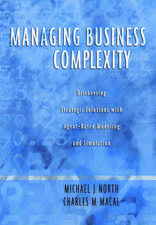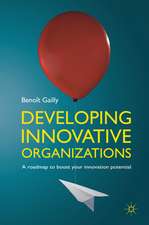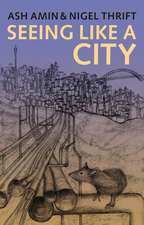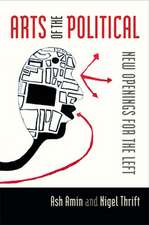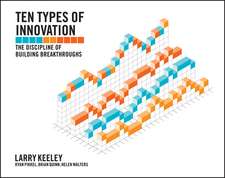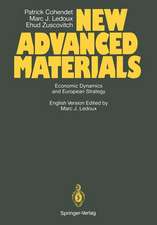Architectures of Knowledge: Firms, Capabilities, and Communities
Autor Ash Amin, Patrick Cohendeten Limba Engleză Paperback – 15 ian 2004
| Toate formatele și edițiile | Preț | Express |
|---|---|---|
| Paperback (1) | 310.41 lei 31-37 zile | |
| OUP OXFORD – 15 ian 2004 | 310.41 lei 31-37 zile | |
| Hardback (1) | 932.93 lei 31-37 zile | |
| OUP OXFORD – 29 ian 2004 | 932.93 lei 31-37 zile |
Preț: 310.41 lei
Preț vechi: 381.33 lei
-19% Nou
Puncte Express: 466
Preț estimativ în valută:
59.40€ • 61.37$ • 49.44£
59.40€ • 61.37$ • 49.44£
Carte tipărită la comandă
Livrare economică 14-20 martie
Preluare comenzi: 021 569.72.76
Specificații
ISBN-13: 9780199253333
ISBN-10: 0199253331
Pagini: 196
Ilustrații: numerous text boxes & figures
Dimensiuni: 156 x 234 x 11 mm
Greutate: 0.3 kg
Editura: OUP OXFORD
Colecția OUP Oxford
Locul publicării:Oxford, United Kingdom
ISBN-10: 0199253331
Pagini: 196
Ilustrații: numerous text boxes & figures
Dimensiuni: 156 x 234 x 11 mm
Greutate: 0.3 kg
Editura: OUP OXFORD
Colecția OUP Oxford
Locul publicării:Oxford, United Kingdom
Recenzii
This slim and well-produced book shows we must now move far beyond narrow discussions of managing communities of practice and learning organizations and consider the broader implications for a changing socio-economy increasingly driven by knowledge.
Notă biografică
Ash Amin is Professor of Geography at Durham University. He has held Fellowships and Visiting Professorships at the Universities of Naples, Venice, Bologna, Copenhagen, Rotterdam and Uppsala. He is a founding co-editor of the Review of International Political Economy and co-editor of Cities. He was Member of the Steering Committee of the European Association for Evolutionary Political Economy (EAEPE) from its foundation in 1989 to 1999. He was member of the Economic and Social Research Council's Research Priorities Board from 1997 to 2001. He is an academician of the Academy of the Learned Societies in the Social Sciences. His research interests lie in the fields of urban and regional development, the geography of the post-mass production economy, spatialities of globalisation, governance alternatives to market and hierarchy, urban democracy and the multicultural city, the geography of the social economy, and the cultural economy.Patrick Cohendet is Professor of Economics at University Louis Pasteur of Strasbourg, France. He has held Fellowships and Visiting Professorships at the Universities of UVA (Charlottesville, Virginia, USA), Toyo (Tokyo, Japan), and HEC-Montréal (Canada). He is one of the co-founders and members of BETA (Bureau d'économie théorique et appliquée), a research group in economics and management of the University Louis Pasteur of Strasbourg. He is member of the commitee of national research (CNRS) in economics and management. He was Member of CADAS (comité d'applications de l'académie des sciences ) from 1989 to 1999. His research interests lie in the fields of economics of innovation, economics of knowledge, theory of the firm, theory of decision, industrial organization and research policy.





